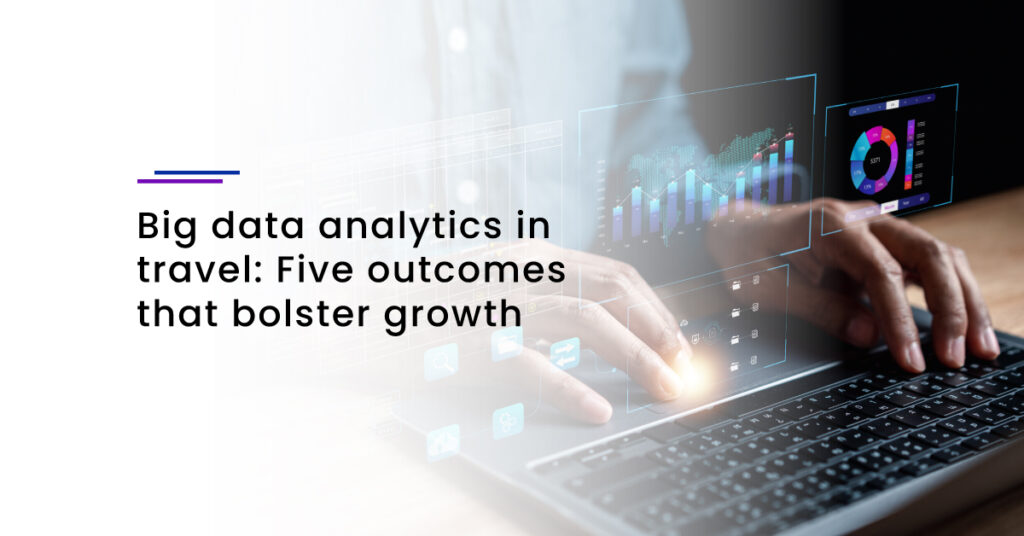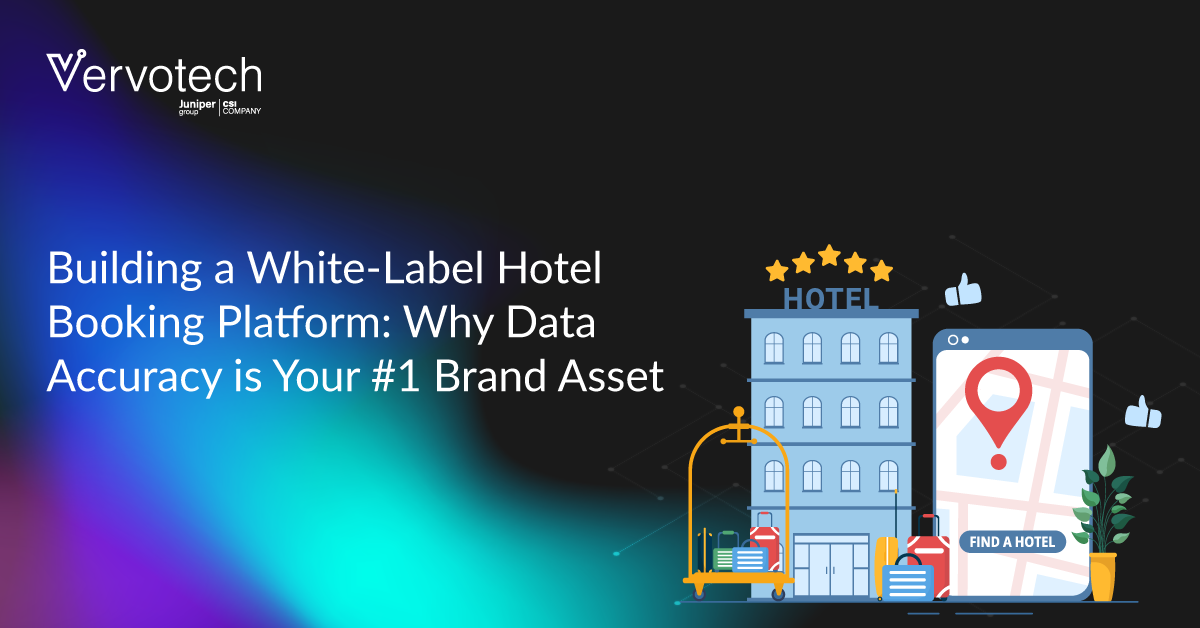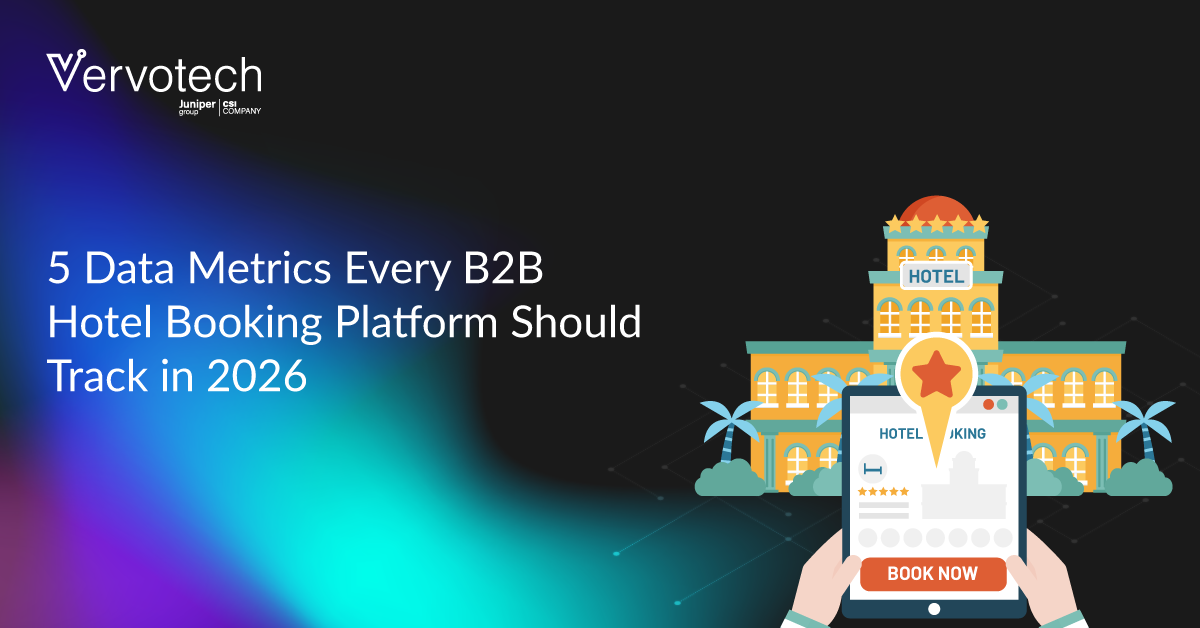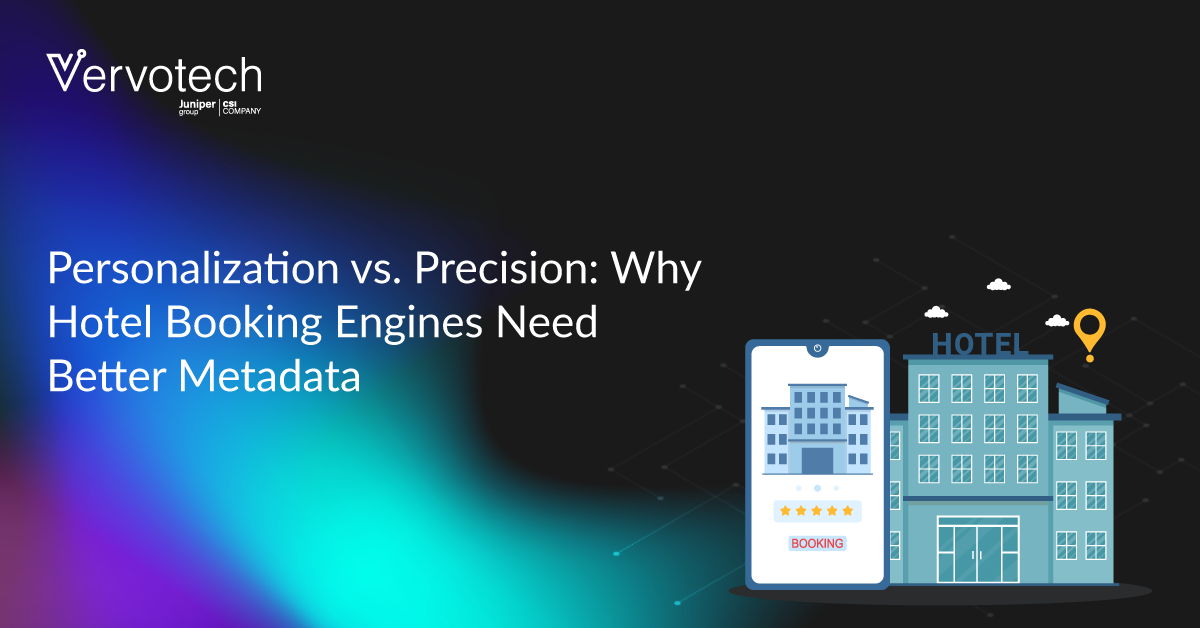The use of big data analytics can single-handedly lift any organization’s operations capability, provide competitive advantages, and highlight new business opportunities. As per a recent study, the global market for big data analytics is expected to reach $103 billion by 2027, with a compound annual growth rate of 11.7% between 2020 and 2027. The numbers suggest the effectiveness of implementing big data analytics. The hospitality industry is also one of its beneficiaries.
Big data analytics has become an increasingly important tool for businesses in the travel industry. Travelers leave a lot of data in their pursuit of finding the right travel products. It includes searching for destinations, flights, and hotels. And even during the travel, they leave a long trail of data sets. All this data and the data from involuntary sources are used for predictive analysis, learning trends, and fixing persisting issues.
So here in this article, we’ll explain how big data analytics makes business sense for the hospitality industry. We will also highlight five key outcomes. But before we go there. Let’s first understand how this data is analyzed.
How is the big data analyzed?
Collecting all the open source and the data coming from third-party sources itself is a demanding task. Then, analyzing and extrapolating this data to put it to use is an even mightier ask. That is when the analytics part comes into play. It collects data from all the sources, organizes and segments it into various parts to make sense of it. Big data cannot be processed and analyzed manually. The analytics platforms use modern technologies to extract valuable and actionable insights for businesses. Also, do predictive analysis, as we highlighted earlier, to identify the upcoming trends in a particular industry.
Watch the following video to understand how predictive analytics work:
Now, let’s narrow our focus to the travel industry and how it benefits from big data analysis. We have identified five outcomes of using BDA that promote growth. Read on!
Five growth outcomes of big data analytics for travel industry
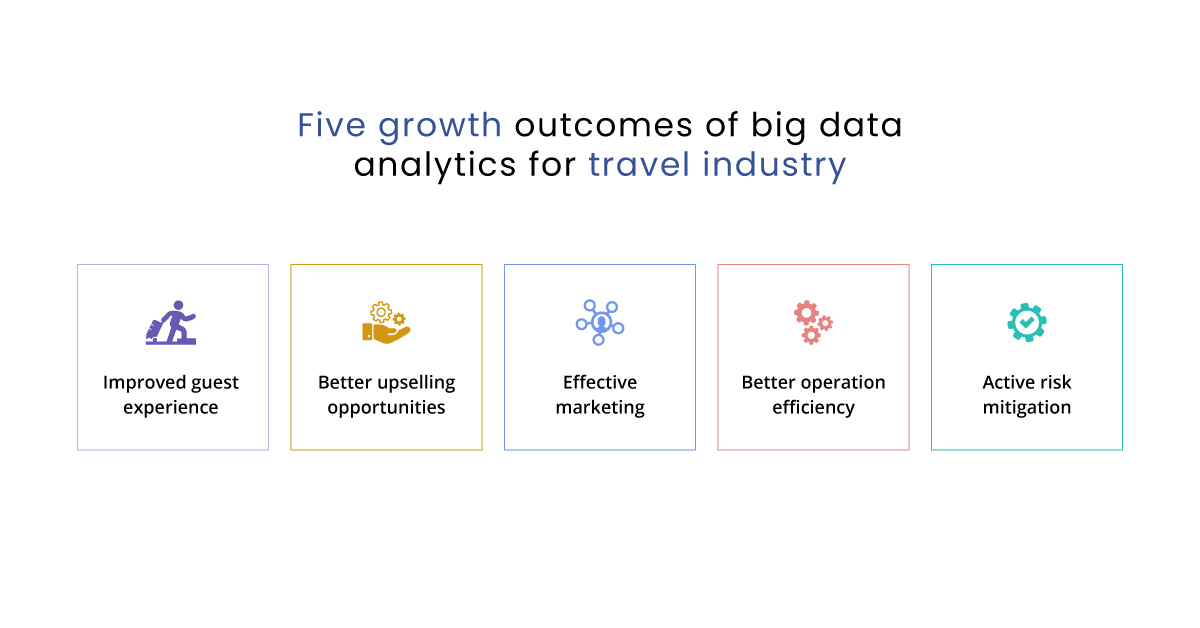
The travel industry can benefit immensely from big data analytics. By analyzing large amounts of data, travel companies can gain valuable insights into customer preferences, behaviors, and needs, leading to a wide range of benefits. Here, we outline five crucial outcomes of employing the learnings of BDA in travel businesses.
#1 Improved guest experience
One of the most meaningful benefits of using big data analytics in the travel industry is improved customer experiences. By analyzing customer preferences and behaviors, travel companies can tailor their services and offers to better meet their customers’ needs. For example, a hotel might use data analysis to determine which amenities are most important to its guests and use that information to improve its offering and provide a better guest experience.
#2 Better upselling opportunities
Big data analytics can also help travel companies increase their revenue. Companies can identify opportunities to upsell and cross-sell products and services by analyzing data on customer spending habits. Such as, a travel agency might use data analysis to identify customers who are likely to be interested in purchasing travel insurance and offer it to them at the time of booking. This can help the agency increase its revenue and improve its bottom line.
#3 Effective marketing
Big data analytics is also helpful in creating more targeted marketing campaigns. With the data on customer demographics and preferences, travel companies can develop targeted messaging and positioning strategies that are more likely to resonate with their audience. For instance, a cruise line might use data analysis to identify customers interested in family-friendly activities and create a marketing campaign focusing on those features. This can help the cruise line reach the right customers with the right messages, leading to higher conversion rates and more effective marketing spending.
#4 Better operation efficiency
Using the data on internal processes and operations, companies can identify areas for improvement and make changes to increase efficiency. For example, a hotel might use data analysis to determine which check-in processes take the longest and implement changes to streamline those processes. This can help the hotel reduce costs and improve the overall efficiency of its operations.
#5 Active risk mitigation
Big data analytics is an excellent tool for managing risks. With quality data on customer behaviors and trends, companies can identify potential risks and take steps to mitigate them. Like, a travel agency might use data analysis to identify a possible trend of cancellations for a particular destination and take steps to manage that risk, such as offering alternative destinations or refunding. This can help the agency avoid potential problems and ensure a smooth and successful travel experience for its customers.
Overall, big data analytics in the travel industry offers many benefits that bolster growth, from improved customer experiences to increased revenue and enhanced operational efficiency. By leveraging the power of data analysis, travel companies can gain valuable consumer insights to help them better serve their prospective customers and improve their bottom line.

